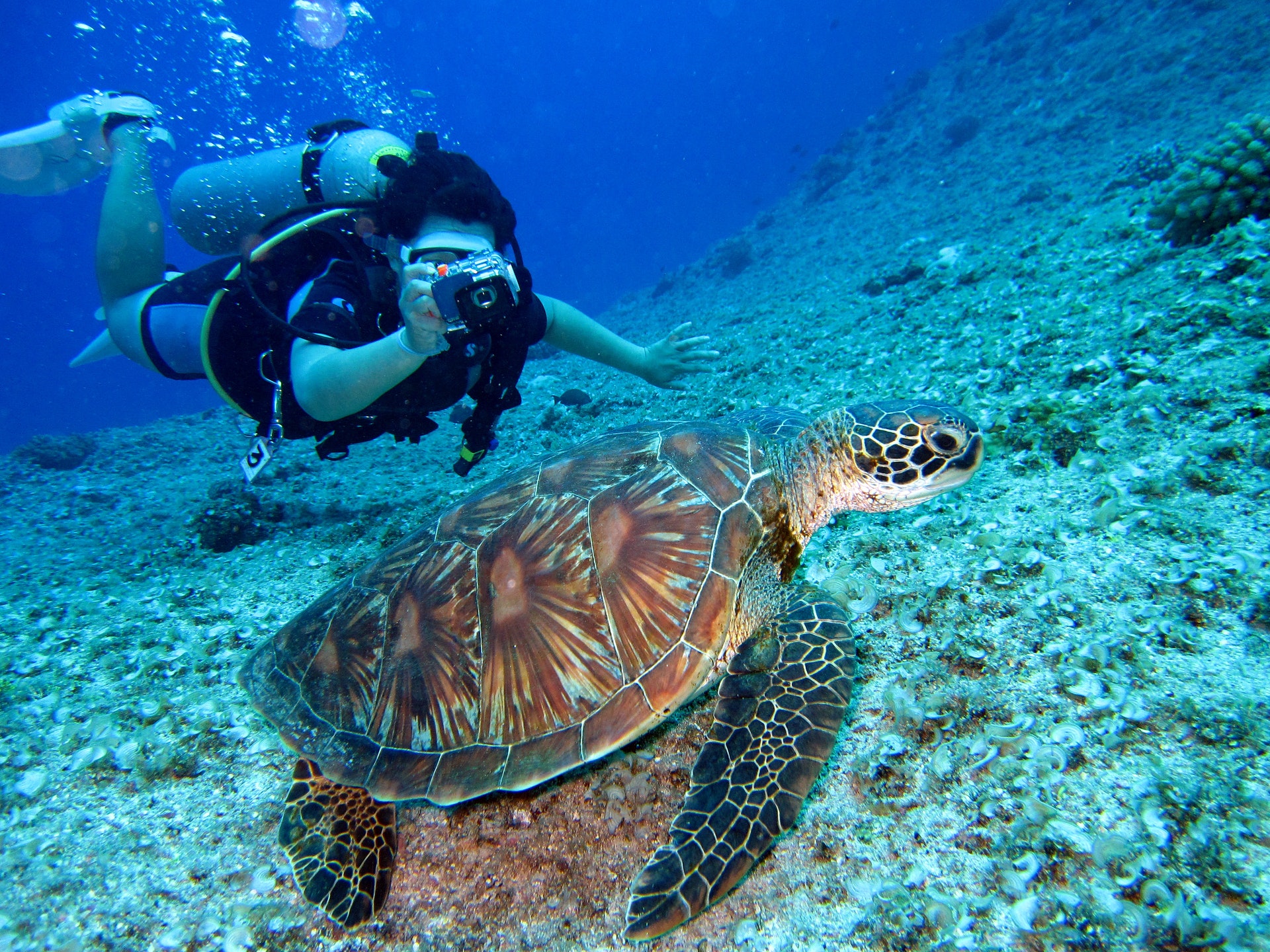Scuba diving is a type of underwater activity that involves breathing in air from above the surface while simultaneously wearing gear that provides breathing gas under pressure to the diver. The total time spent submerged varies depending on whether one dives alone or with others, but usually lasts for two hours at most.
It is common for scuba divers to wear wet suits and gloves so they can stay warm underwater, where it’s typically much colder than on land. They also wear masks and goggles so they can see clearly below the surface of the water. Scuba divers use many different types of equipment during their dive, including tanks that are filled with compressed air, regulators which supply the diver with breathable air, buoyancy compensators to help them stay afloat, and weights to help them sink.
Diving can be a fun and exhilarating experience, but it’s important to remember a few key things before you take the plunge for the first time. Here are some dos and don’ts to keep in mind.
Do’s of First-time Scuba Divers
- Make sure that you are comfortable breathing underwater before scuba diving for the first time. You can try snorkeling, which is similar but doesn’t require being submerged as long, to test out how your body reacts to being underwater.
- Learn the basic safety procedures and scuba diving lingo before your trip. This will help you feel more confident in your abilities and better understand what your dive instructor is saying.
- Get fitted for a good quality scuba diving mask and fins. Having the proper gear can make all the difference when it comes to comfort and enjoying your dive.
- Start with a shallow dive and work your way up to deeper ones as you get more comfortable. This will help you avoid any potential problems and make the experience more enjoyable.
- Go with a group of experienced divers who can show you the ropes and answer any questions you have. safety is key when diving, and it’s always helpful to have someone looking out for you.
Don’ts of First-time Scuba Divers
- Don’t go on a scuba diving trip until you are comfortable breathing underwater and can complete basic safety procedures. This will help ensure that you have a safe and enjoyable dive.
- Don’t eat a big meal right before your dive. A heavy meal can cause discomfort underwater and make it hard to stay focused and alert.
- Don’t go scuba diving with a fever or an infection. This will only make the experience more uncomfortable, so wait until you are feeling better before taking the plunge.
- Don’t attempt challenging dives right away. Try to pick something that is in your comfort zone, before you start pushing the limits of what your body can handle.
- Don’t let someone pressure you into anything uncomfortable or dangerous. Scuba diving is supposed to be enjoyable and exciting, and if someone is trying to push you outside of your comfort zone, it’s probably best to find someone else who wants to dive with you.
- Don’t forget that scuba diving is a skill that takes time, patience, and practice to learn well. You can’t just jump in the water and expect to magically know how to do it.
With these dos and don’ts in mind, you’re ready to start scuba diving for the first time! Just remember to take things slowly, stay safe, and have fun. The underwater world is waiting for you!



